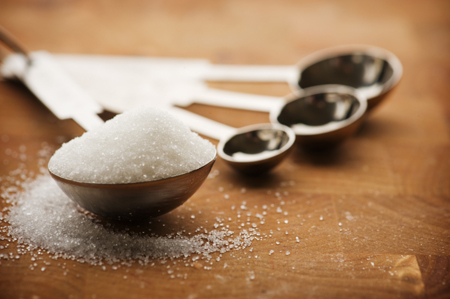 (Bloomberg) – Raw sugar erased declines for the year on speculation a fire at the port of Santos in Brazil may disrupt shipments and force millers in the world’s biggest producer to make more ethanol. Cocoa and coffee retreated.
(Bloomberg) – Raw sugar erased declines for the year on speculation a fire at the port of Santos in Brazil may disrupt shipments and force millers in the world’s biggest producer to make more ethanol. Cocoa and coffee retreated.
A fire that broke out at Copersucar SA’s terminal in Santos on Oct. 18 left six warehouses “totally compromised” and destroyed 180,000 metric tons of the sweetener, according to the Sao Paulo-based company. Prices in the physical market may rise and the rebuild of the operations may take eight to 12 months, Arnaldo Luiz Correa, a director at Archer Consulting in Sao Paulo, said in a report e-mailed Oct. 19. Millers may have to make more ethanol next year if sugar can’t be exported, according to broker Marex Spectron Group in London.
“There is still significant uncertainty as to the extent of the damage to the loading facility and how long it will be out of action,” Lausanne, Switzerland-based researcher Kingsman SA, a unit of McGraw-Hill’s Platts, said in a report e-mailed today. “Rather unsurprisingly the physical market for Brazilian raw sugar did not trade on Friday.”
Raw sugar for delivery in March rose 0.2 percent to 19.53 cents a pound by 7:37 a.m. on ICE Futures U.S. in New York, bringing prices 0.1 percent higher for the year after falling as much as 18 percent by July. Refined, or white, sugar for December delivery fell 0.1 percent to $513.40 a ton on NYSE Liffe in London.
Next Crop
“If the terminal is not functioning when the next crop gets under way (May 2014), then it will certainly make it harder, slower and more expensive to export Brazilian sugar,” Robin Shaw, an analyst at Marex Spectron in London, said in a report e-mailed today. “If the sugar cannot be exported, it may move the mix in the next crop towards ethanol,” he said. In Brazil, sugar cane is used either to make sweetener or biofuel.
Futures rebounded this year after touching a low of 15.93 cents a pound in July on the Santos fire, signs of improved demand and rains that reduced this year’s crop in Brazil’s center south, the country’s main-growing region.
Sugar is this month’s best performer in the Standard & Poor’s gauge of 24 raw materials. Prices rallied as much as 6.1 percent on Oct. 18, with most of the buying coming as traders and some speculators closed bets on lower prices, according to Kingsman.
Short Positions
“The dramatic price reaction is no doubt attributable to covering of short positions, for the amount of sugar lost in the fire is equivalent to just approximately 0.5 percent of Brazil’s annual sugar production, or 10 percent of the country’s monthly sugar exports,” Carsten Fritsch, an analyst at Commerzbank AG in Frankfurt, said in a report today.
“The fact that the sugar price had already been enjoying an upswing ahead of Friday’s events on the back of rain-induced harvesting delays in Brazil is also likely to have played its part in the price response.”
Sugar supplies will outpace demand by 2 million tons in the 2013-14 season that started this month in most countries, according to Czarnikow Group Ltd. in London, which traded 2.4 million tons of raw sugar last year. That’s down from a previous forecast for excess supplies of 3.9 million tons. The surplus will be smaller on rising consumption, it said.
Higher sugar prices are attracting more sales from countries such as India, Mexico and Pakistan, according to Marex Spectron’s Shaw. Overseas sales by India may already have reached 500,000 tons, he said. Al Khaleej, the world’s largest sugar refinery, bought 50,000 tons of Indian sweetener for delivery from December to January, Cyrus Raja, general manager at the Dubai-based company, said by phone today. There’s potential for the company to buy more sweetener from India, the world’s second-biggest producer, he said.
Arabica coffee for delivery in December dropped 0.2 percent to $1.144 a pound on ICE. Robusta for delivery in January fell 0.1 percent to $1,616 a ton on NYSE Liffe.
Cocoa for delivery in December lost 0.3 percent to $2,713 a ton in New York. In London, beans for delivery in the same month fell 0.2 percent to 1,727 pounds ($2,792) a ton.




